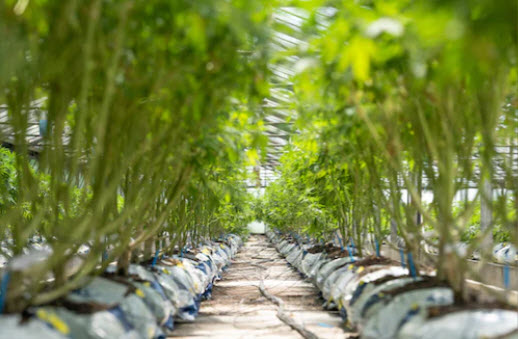The Greens say that new legal advice allows a clear path for full legalization next year
Yesterday, New South Wales senator and party justice spokesperson David Shoebridge announced via Twitter that his office had received advice that all Australian state legislation that criminalizes cannabis use could be overridden by the Commonwealth – a voluntary association of 56 independent and equal countries, home to 2.5 billion people, and the historical evolution of the British Empire.
Even if the acronym CHOGM sticks in your throat and your personal opinion of the Green Party (fill in the blank anywhere) is of a well-meaning, politically ineffective grouping of environmentally and socially aware individuals, you have to give the Aussie version of the same credit. They are weighing in on the cannabis conversation in a way guaranteed to gain international attention. Especially given current debates in Europe, and even more particularly in Germany, about whether national legalization will “violate” international law, starting with the EU variety.
Section 51 – The Bermuda Triangle of Legalization?
The particular legal eagle mumbo jumbo in question says that the Australian Parliament has the power, due to the Australian constitution, in line with the international coalition of Commonwealth countries, to make laws for the peace, order and good government of the same with respect to a whole bunch of issues, including not only the trade and commerce with other countries, but, specifically with regard to the legalization of cannabis, the copyrights, patents of inventions and designs, and trademarks section of the same which could be used to regulate cannabis strains as plant varieties and allow them to be listed in a schedule of which the commonwealth has exclusive regulatory control.
It is certainly an interesting constitutional opinion from a decidedly unsophisticated less than commercially minded part of the political spectrum, but does this really carry any weight? Not to mention is this in the least bit implementable?
This question carries a whole bunch of other unanswered questions. Namely, if Australia can do it, why couldn’t say Bermuda do it too? The UK government has other ideas about this, which is why the Liz Truss headed government just kiboshed Bermuda’s attempts to generally do the same thing.
Beyond this, the fact that Germany is currently debating whether recreational cannabis reform domestically “violates” international (either EU or UN treaty law) makes this a decidedly sexy topic.
But where is the sizzle in the steak beyond philosophical ponderings on constitutional intent?
The Regional Approach to Changing International Law
At the heart of all such discussions is the fundamental idea that individual countries can’t change the international discussion about cannabis, but regional groups of countries can. This is certainly an interesting question to ponder but still does not take into effect the fact that change most easily happens on a national level no matter what coalitions to which one might belong. This is what is currently at the heart of the effort now underway between the multinational coalition of countries that include Germany, Luxembourg, and Malta in the EU.
In other words, this Aussie proposal is certainly a nice idea. However, it belies the reality that separates from these discussions, multiple countries, namely Canada, Uruguay, and for the sake of argument Holland, not to mention Switzerland, have already answered the question.
All politics are local after all.
Delaying Tactic or Fast Lane to Cannabis Reform?
Here is the basic reality at the heart of all political cannabis discussions right now. Countries are the best way to start with implementing cannabis reform. Not states (as in America) or sovereign entities represented as a bloc under EU mandate and regulation.
This is, of course terribly threatening to not only conservative elements of domestic politics anywhere (see the pushback on German reform from the CSU in Bavaria as just one example) but the lefty version of the universe as well. Namely, both extremes of the political spectrum are usually marginalized domestically on every issue, including cannabis. A more global worldview is thus far more appealing.
The tragic reality is, however, that the administrative cogs of power and decision-making move far more slowly the larger the political universe one swims in. And while the Australian Greens see this issue as a matter of “enabling” the Commonwealth to override state and territory law on a federal basis, what they are actually saying is that a single government within the commonwealth is able to make decisions independently of the whole.
It is certainly an interesting legal opinion in a world where cannabis reform of all kinds proceeds at an unequal pace, depending on where one sits on the planet. If wishes were fishes, in other words, this is certainly an interesting angle to explore. The reality, is, however, that they are not – no matter how Christian or nationalist one is.
Jesus may have been able to turn water into wine or fish. The regulated cannabis industry, everywhere, plainly, cannot.









